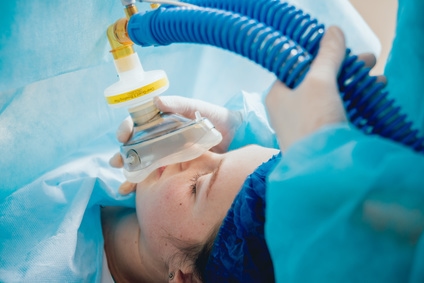It is not unusual to have vivid dreams during surgery, but when dreams become lucid awareness, surgery can become a nightmare.
Becoming conscious during a surgical procedure is called “intraoperative awareness” or “anesthesia awareness.” According to the Mayo Clinic, about one or two people in every 10,000 surgeries is partially awake during their procedure. Muscle relaxants administered with anesthesia make it almost impossible for patients to alert surgical attendants.
If patients become aware during surgery, they may feel pressure at the surgical site, but do not often experience sensation associated with the use of surgical tools. Some patients have reported serious discomfort from the use of drugs during the surgery. In severe cases, patients are traumatized, and experience anxiety, depression, nightmares, and post-operative traumatic stress that could require long-term medication and support.
What Causes Anesthesia Awareness?
Despite the common use of anesthesia, it is not really known exactly how anesthesia works. Although receiving anesthesia is commonly called “going to sleep,” anesthesia does not induce sleep, but instead depresses brain activity in a different way than when you sleep at night. Drugs used to induce unconsciousness operate differently than natural sleep-wake cycles.
Anesthesia awareness is well known and medical caregivers and governing agencies work to try and reduce the incidence of intraoperative awareness, but it still happens. Here are some factors that can be associated with anesthesia awareness:
- Procedures that are performed with lighter sedation or a regional anesthesia may be at higher risk for anesthesia awareness.
- A surgeon and surgical team must weigh patient health with surgical safety. In certain higher risk procedures, like cardiac surgery, cesarean section, emergency cesarean section, or trauma surgery, heavy sedation may not be considered a surgical best practice.
- Improper use, dosing, and administration of sedation can result in anesthesia awareness. Poor training on equipment or equipment failure can also result in intraoperative awareness.
Take Steps To Reduce Your Risk Of Anesthesia Awareness
In addition to high-risk surgeries, there are other factors that can make you more vulnerable to a poor sedation experience, including:
- Use of some medications or herbal supplements
- Smoking or frequent use of alcohol
- Respiratory or heart problems
- Depression
In some cases, anesthesia awareness occurs as a result of medical malpractice. If possible before surgery, ask about the performance record or any complaints filed regarding your surgeon and proposed anesthesiologist. As a medical consumer, you have a right to information about service providers who literally have your life and well-being in their hands.
Prior to surgery, speak with your surgeon or anesthesiologist about any unusual experiences you may have had with anesthesia, including prior episodes of anesthesia awareness. Discuss your medical history and mention any supplements or medications that you take. If you have fears or concerns about intraoperative awareness, be sure to bring those up as well.
If you experience anesthesia awareness, be sure to speak with your surgeon, doctor, or anesthesiologist as soon as possible. Talking about the experience and getting appropriate counseling can often reduce the fear or trauma you might experience.
Experienced Medical Malpractice Firm Fights For Compensation On Your Behalf In Baltimore
Serving injured patients around the country from offices in Baltimore, Maryland, and Washington, D.C., Schochor, Staton, Goldberg, and Cardea, P.A. is a well-respected medical malpractice law firm that pursues compensation on behalf of clients injured by mistake or negligence. Call 410-234-1000 or contact us today to schedule a free consultation to discuss your injury.













